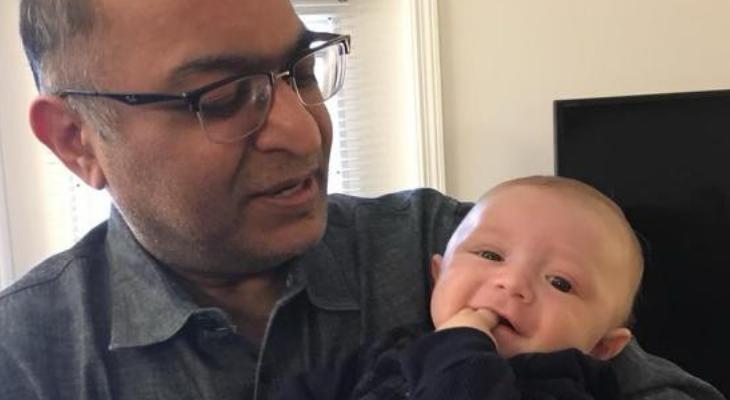As a Community Mourns a Decent Man, Faith Helps Guide the Goodbye
November 10, 2021

(This piece was first published on Oct. 25, 2021, on Interfaith America.)
In Memorium
We buried my cousin last week — Mukhi Saheb Rai Akbar Merchant of the Ismaili Muslim community and the American dream. He did not seek mastery over universes, he desired no Hollywood star. He lived with dignity and decency. He built a business that provided a useful service and treated employees well. He loved his wife, raised kind-hearted children, was a pillar of the Ismaili Muslim community in New York City and the greater Northeast.
Mukhi Saheb is a title given by the Aga Khan; it means prayer leader of an Ismaili Muslim house of worship, called a jamatkhana. Along with his wife Khatidja, who held the title called Mukhianima (we Ismailis have female prayer leaders who have virtually all the same roles and responsibilities as men), Akbar led services at 7:30 pm every night, and many mornings at 5:30 am as well. He married people and buried them. He counseled families, played with children, visited the sick, spoke at dinners, represented the community at public events. Every Saturday evening after prayers he led a reading group with the jamatkhana’s youth. This is the chopping wood and carrying water of local religious leadership, the red wheelbarrow of civic and communal life on which so much (maybe everything) depends.
The service was beautiful. The family mourned in intimate space with the body. Akbar’s son, Zubair, my nephew (whom I am very close to), wept freely as he talked to his father’s body in the casket.
We were guided in prayer and song by the Ismaili community volunteers Akbar left behind. He was their leader. They honored him by the love they showed in the burial.
This is what faith communities and religious traditions do so well. In a time of such grief that you can’t even think straight, the tradition supplies the prayers to recite and the songs to sing. The community gathers to carry you through them. Whether you are a believer or not (and, just to be clear, I am), there is wisdom here for the human condition at large. Through every little detail of the memorial – the Qurannic ayahs that are read, the ritual manner in which the coffin is carried, the touching of the soil that will be placed on the grave – the family gets closure, the community offers comfort, the ruhani (departed soul) is readied for its journey home.
It was not lost on me that the funeral home was Jewish (Schwartz Brothers-Jeffer in Queens), and that the manager whispered a Hebrew prayer when I greeted him upon entering. I view that small Jewish prayer as a piece of the ceremony, part of the last rites for my cousin and our family. It should not be taken for granted that we live in a nation whose political arrangements allow diverse faith communities to build institutions where their traditions continue, and whose civic culture encourages the kind of cooperation in which a Muslim community leader would be laid to rest in a Jewish funeral home.
Share
Related Articles
American Civic Life
American Civic Life
Racial Equity
Immigrant Faith Communities On Rooting Out Anti-Black Racism



